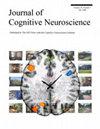Medial Temporal Lobe Damage Impairs Temporal Integration in Episodic Memory
IF 3.1
3区 医学
Q2 NEUROSCIENCES
引用次数: 0
Abstract
Although the role of the medial temporal lobe (MTL) and the hippocampus in episodic memory is well established, there is emerging evidence that these regions play a broader role in cognition, specifically in temporal processing. However, despite strong evidence that the hippocampus plays a critical role in sequential processing, the involvement of the MTL in timing per se is poorly understood. In the present study, we investigated whether patients with MTL damage exhibit differential performance on a temporal distance memory task. Critically, we manipulated context shifts, or boundaries, which have been shown to interfere with associative binding, leading to increases in subjective temporal distance. We predicted that patients with MTL damage would show impaired binding across boundaries and thus fail to show temporal expansion. Consistent with this hypothesis, unilateral patients failed to show a temporal expansion effect, and bilateral patients actually exhibited the reverse effect, suggesting a critical role for the MTL in binding temporal information across boundaries. Furthermore, patients were impaired overall on both the temporal distance memory task and recognition memory, but not on an independent, short-timescale temporal perception task. Interestingly, temporal distance performance could be independently predicted by performance on recognition memory and the short temporal perception task. Together, these data suggest that distinct mnemonic and temporal processes may influence long interval temporal memory and that damage to the MTL may impair the ability to integrate episodic and temporal information in memory.内侧颞叶损伤会损害外显记忆中的时空整合能力
尽管内侧颞叶(MTL)和海马在情节记忆中的作用已得到公认,但新出现的证据表明,这些区域在认知中发挥着更广泛的作用,特别是在时间处理中。然而,尽管有强有力的证据表明海马在顺序加工中发挥着关键作用,但人们对 MTL 在时间本身的参与却知之甚少。在本研究中,我们调查了 MTL 受损患者在时距记忆任务中是否表现出不同的表现。重要的是,我们对上下文转移或边界进行了操作,事实证明,边界会干扰联想结合,从而导致主观时距的增加。我们预测,MTL受损的患者将表现出跨边界的联结能力受损,从而无法表现出时间扩展。与这一假设相符的是,单侧患者未能表现出时间扩展效应,而双侧患者实际上表现出相反的效应,这表明 MTL 在跨边界结合时间信息方面起着关键作用。此外,患者在时距记忆任务和识别记忆中的总体表现均受损,但在一项独立的短时标时间感知任务中却没有受损。有趣的是,识别记忆和短时标时间感知任务的表现可以独立预测患者的时距表现。这些数据共同表明,不同的记忆过程和时间过程可能会影响长间隔时间记忆,而 MTL 的损伤可能会损害记忆中整合情节信息和时间信息的能力。
本文章由计算机程序翻译,如有差异,请以英文原文为准。
求助全文
约1分钟内获得全文
求助全文
来源期刊
CiteScore
5.30
自引率
3.10%
发文量
151
审稿时长
3-8 weeks
期刊介绍:
Journal of Cognitive Neuroscience investigates brain–behavior interaction and promotes lively interchange among the mind sciences.

 求助内容:
求助内容: 应助结果提醒方式:
应助结果提醒方式:


